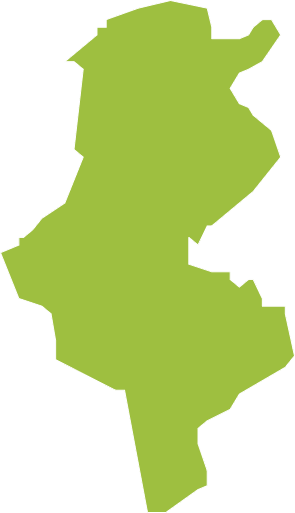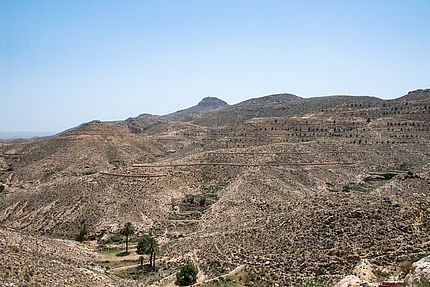AFRICA
Tunisia

Area: 163,610 km²
Geography: The climate of Tunisia is influenced by the Mediterranean and the Sahran climate: In the north, there is a temperate climate with mild as well as rainy winters and hot and dry summers. In the south, arid climate conditions can be found. Important in agricultural production are wheat, milk, tomatoes, barley and olives. Olive oil is amongst the main export commodities. (CIA, 2022)
Land Degradation: In 2008, 75 percent of the total land area was threatened by land degradation. Desertification is one of the major problems for development originating from overgrazing, deforestation, agricultural practices and salinization. (Aloui, 2008)
Sustainable Land Management: Land conservation has been the focus of national policies for almost 30 years. Tunisia has elaborated a National Action Programme to combat desertification in 1998. (Aloui, 2008; UNCCD, 2000)

ELD ACTIVITIES
CONTACT
ELD Secretariat
E-Mail: info@eld-initiative.org
